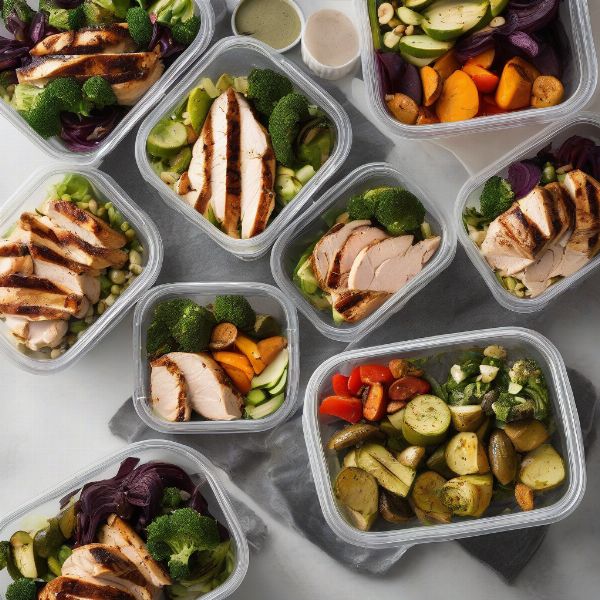Ever dreamt of slipping into that special outfit with newfound confidence? Achieving significant weight loss, like shedding 10kg in a month, can feel like a daunting mountain to climb. While the desire for a quick fix is tempting, the journey to a healthier you is a marathon, not a sprint. This comprehensive guide dives into the science-backed strategies to help you reach your goal safely and sustainably.
Understanding the Science Behind Weight Loss
Before embarking on any weight loss journey, it’s crucial to grasp the fundamental principles. Weight loss boils down to a simple equation: calories consumed versus calories expended. To lose weight, you need to create a calorie deficit, meaning you burn more calories than you take in.
One kilogram of fat roughly equates to 7,700 calories. To lose 10kg in a month (let’s assume an average of 30 days), you’d need a deficit of approximately 2,567 calories per day. While this number might seem intimidating, a combination of dietary adjustments and physical activity can help you achieve this.
A Word of Caution
It’s important to note that losing 10kg in a month is a significant goal and may not be suitable or healthy for everyone. Rapid weight loss can sometimes lead to nutrient deficiencies, muscle loss, and other health complications.
This guide will focus on healthy and sustainable approaches to weight loss. If you have any underlying health conditions, it’s crucial to consult your doctor or a registered dietitian before making significant lifestyle changes.
Effective Strategies to Support Your Journey
While the concept of a calorie deficit is straightforward, implementing sustainable changes requires a multifaceted approach:
1. Revamp Your Eating Habits
Focus on Nutrient-Dense Foods: Prioritize whole, unprocessed foods that pack a nutritional punch. Fill your plate with:
- Fruits and Vegetables: Abundant in vitamins, minerals, and fiber, they promote satiety and support overall health.
- Lean Protein: Crucial for muscle building and repair, it helps you feel fuller for longer, reducing cravings. Opt for sources like chicken breast, fish, tofu, beans, and lentils.
- Whole Grains: Unlike refined grains, whole grains provide fiber, which aids digestion and regulates blood sugar levels. Choose brown rice, quinoa, oats, and whole-wheat bread.
- Healthy Fats: Essential for hormone production and cell function, incorporate sources like avocados, nuts, seeds, and olive oil.
Limit Processed Foods, Sugary Drinks, and Unhealthy Fats: These culprits contribute to weight gain and offer little nutritional value.
Hydration is Key: Often, we mistake thirst for hunger. Aim for at least 8 glasses of water daily.
2. Incorporate Regular Exercise
Physical activity not only burns calories but also boosts your metabolism and improves overall well-being.
Find an Activity You Enjoy: The key to consistency is choosing an activity you genuinely enjoy. Whether it’s brisk walking, dancing, swimming, or cycling, find something that fits your lifestyle.
Gradually Increase Intensity and Duration: Start slow and listen to your body. Gradually increase the intensity and duration of your workouts as your fitness level improves.
Strength Training: Incorporating strength training twice a week helps build muscle, which further boosts your metabolism, leading to more calories burned even at rest.
3. Prioritize Sleep and Manage Stress
Adequate sleep (7-9 hours) is crucial for hormone regulation, including those involved in appetite control. Stress can lead to overeating and weight gain. Explore stress-reducing techniques like yoga, meditation, or spending time in nature.
Realistic Expectations and Sustainability
Remember, sustainable weight loss is a gradual process. While aiming for 10kg in a month is ambitious, it’s essential to prioritize your health and well-being above all else.
Plateaus are Normal: Don’t get discouraged if your progress slows down or plateaus. It’s a natural part of the journey. Stay consistent with your efforts, and the results will follow.
Celebrate Non-Scale Victories: Weight loss is not just about the number on the scale. Take note of how you feel—increased energy levels, improved sleep, better fitting clothes—these are all significant achievements.
Long-Term Lifestyle Changes: Instead of viewing this as a temporary diet, embrace it as a long-term lifestyle shift.
 Healthy Meal Prep
Healthy Meal Prep
Seeking Professional Guidance
If you find it challenging to navigate this journey alone, seeking guidance from healthcare professionals can provide invaluable support.
Registered Dietitian: A registered dietitian can help you create a personalized meal plan tailored to your specific needs and goals.
Certified Personal Trainer: A certified personal trainer can design a safe and effective workout plan, ensuring you’re using proper form and maximizing your efforts.
Conclusion: Your Journey to a Healthier You
Embarking on a weight loss journey can feel both exciting and challenging. Remember, sustainable weight loss is about progress, not perfection. Focus on making small, gradual changes to your diet and lifestyle that you can maintain over time. Embrace the process, celebrate your victories, and remember, you’ve got this!
Ready to take the next step? Explore our website for delicious healthy recipes, effective workout routines, and inspiring success stories. We’re here to support you every step of the way. What are your biggest weight loss challenges? Share your thoughts and questions in the comments below!